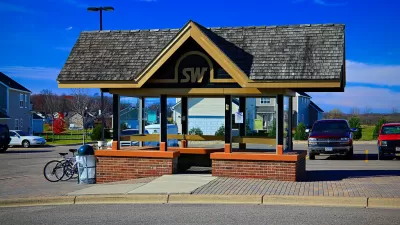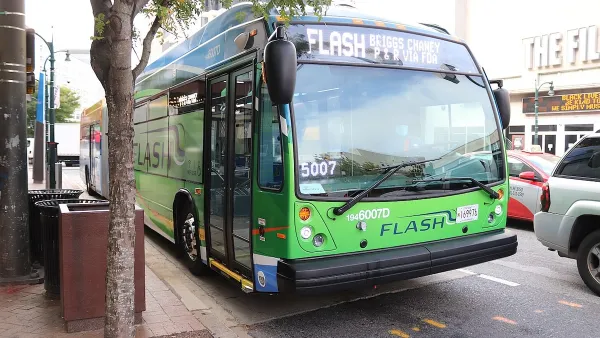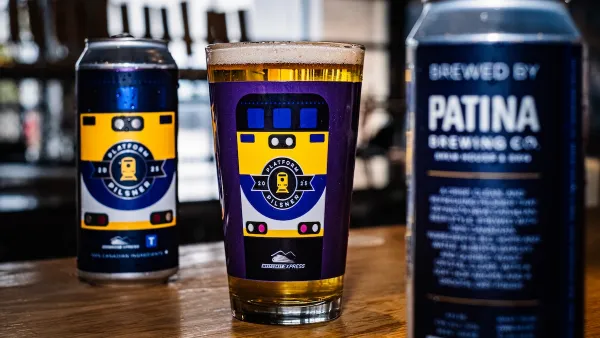A recent opinion piece in The Wall Street Journal on the reasons why "Americans don't want to live in Ray LaHood's car-free utopia" is garnering a lot of attention in the planning and transportation worlds.
In the opinion piece, the Journal's editors slam the ongoing struggle to complete a new multi-year transportation bill as bereft of any "new thinking." They point to estimates that "traffic gridlock costs motorists more than $100 billion a year in delays and wasted gas" as evidence of "inefficient transportation spending" in which 35 cents of every gas tax dollar is "intercepted by the public transit lobby and Congressional earmarkers." According the the editors, who clearly aren't traffic engineers, "This congestion could be alleviated by building more highway lanes where they are most needed and using market-based pricing-such as tolls-for using roads during peak travel times."
In attacking Transportation Secretary Ray LaHood's "strange 'livability' agenda" wherein people can actually complete a daily chore or two without getting in an automobile, they conclude that, "If Congress really wants to enhance the livability of cities and suburbs, it will pass a highway bill that builds more roads."
It's hard to know where to begin in refuting the naive comments made in the article, but Janet Kavinoky at the U.S. Chamber of Commerce's Free Enterprise blog, of all places, takes a shot. Citing their strong belief that "transit is a critical means of addressing congestion and driving economic development in many areas around the country", Kavinoky, speaking on behalf of the Chamber, argues that "the federal government plays an important and necessary role in infrastructure investment."
FULL STORY: Why Your Highway Has Potholes

Planetizen Federal Action Tracker
A weekly monitor of how Trump’s orders and actions are impacting planners and planning in America.

Restaurant Patios Were a Pandemic Win — Why Were They so Hard to Keep?
Social distancing requirements and changes in travel patterns prompted cities to pilot new uses for street and sidewalk space. Then it got complicated.

Maui's Vacation Rental Debate Turns Ugly
Verbal attacks, misinformation campaigns and fistfights plague a high-stakes debate to convert thousands of vacation rentals into long-term housing.

Boulder Eliminates Parking Minimums Citywide
Officials estimate the cost of building a single underground parking space at up to $100,000.

Orange County, Florida Adopts Largest US “Sprawl Repair” Code
The ‘Orange Code’ seeks to rectify decades of sprawl-inducing, car-oriented development.

Maui's Vacation Rental Debate Turns Ugly
Verbal attacks, misinformation campaigns and fistfights plague a high-stakes debate to convert thousands of vacation rentals into long-term housing.
Urban Design for Planners 1: Software Tools
This six-course series explores essential urban design concepts using open source software and equips planners with the tools they need to participate fully in the urban design process.
Planning for Universal Design
Learn the tools for implementing Universal Design in planning regulations.
Heyer Gruel & Associates PA
JM Goldson LLC
Custer County Colorado
City of Camden Redevelopment Agency
City of Astoria
Transportation Research & Education Center (TREC) at Portland State University
Camden Redevelopment Agency
City of Claremont
Municipality of Princeton (NJ)





























